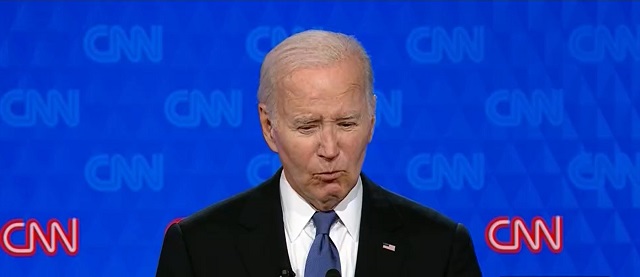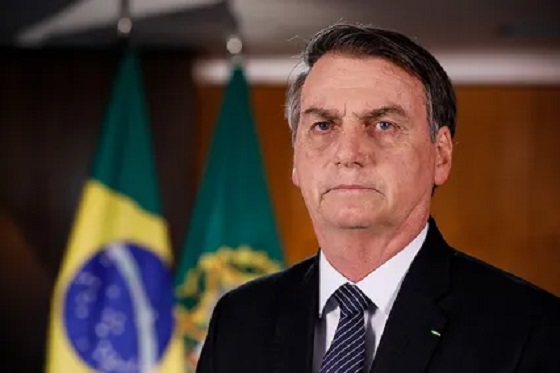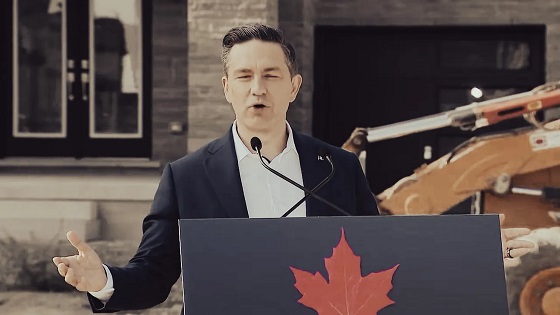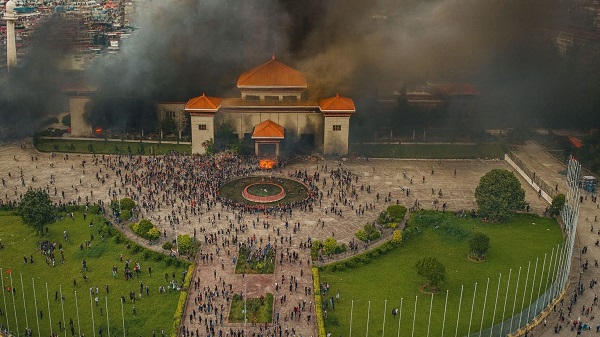Opinion
Biden’s Most Shocking Lie

 From the Daily Caller News Foundation
From the Daily Caller News Foundation
A slack-jawed old man looked straight at the floor and lied.
“When [Trump] was president, they were still killing people in Afghanistan and he didn’t do anything about that,” President Joe Biden rasped.
Watching the first presidential debate of 2024, I couldn’t believe Biden dared utter the word, “Afghanistan.” Our current commander-in-chief surrendered 20 years of hard-fought American accomplishments in that dusty, God-forsaken country. Biden handed Afghanistan to the Taliban — along with $8 billion worth of equipment and $2 trillion in lost investment.
Did he think we forgot that the Afghanistan debacle was on his watch? In office for less than three months, Biden insisted the scant 2,500 American troops in Afghanistan be completely withdrawn by Sept. 11, 2021. For comparison, note that Biden had ten times the number of troops guarding Washington for his own inauguration.
Though he later attempted to blame President Donald Trump for his Afghanistan disaster, Biden gave the order and it is archived right here at the Department of Defense.
By broadcasting our withdrawal date to the enemy, abandoning our most strategic military bases including Bagram Air Base and ignoring his top military advisors, Biden turned Operation Enduring Freedom into an enduring embarrassment for the United States.
Biden’s retreat from Kabul was the most humiliating American defeat since the British sacked Washington and burned the White House, Capitol and Navy Yard in August 1814.
As defeats tend to do, the debacle weakened American deterrence around the world. The failed Afghanistan withdrawal undoubtedly emboldened Vladimir Putin in his invasion of Ukraine six months later.
On CNN’s debate stage, Biden shamelessly doubled-down on his lie with yet another — even bigger — lie.
“The truth is, I’m the only president in this century… this decade… that [sic] doesn’t have any troops dying anywhere in the world like [Trump] did,” he said.
For a commander-in-chief to forget the troops who have given their last measure of devotion on his watch is unconscionable. In August 2021, trying to fulfill Biden’s foolish Afghanistan orders, 11 Marines, one Army soldier and one Navy corpsman were killed in the bombing at the Hamid Karzai International Airport Abbey Gate in Kabul.
Did Biden also forget the three service members who were killed just this January in a drone attack in Jordan?
I served in Afghanistan in 2010-11 and was there again in December 2020 with acting-Secretary of Defense Christopher Miller. We had flown into Kabul to visit troops and meet with Afghanistan’s last U.S. commander, Gen. Austin S. Miller.
Here is a fact, briefed to us while there: In the last eight months of Trump’s first term, there wasn’t a single hostile casualty in Afghanistan. Let that sink in. Afghanistan was more peaceful under President Trump than at any other time since prior to America’s invasion in 2001.
Partisan pundits won’t admit it, but after four years of Trump in office, Afghanistan was stable.
America hadn’t entered any new conflicts. Putin dared not set a toe into Ukraine. Peace was breaking out all over the Middle East with the signing of the Abraham Accords. Russia wasn’t rushing into the arms of China and Iran. Even North Korea had paused its missile tests. In short, the world was more stable and secure.
Let’s hope most Americans will vote to return to Trump’s more effective foreign policy and military strategy.
Morgan Murphy is a former DoD press secretary, national security adviser in the U.S. Senate, a veteran of Afghanistan.
The views and opinions expressed in this commentary are those of the author and do not reflect the official position of the Daily Caller News Foundation.
Business
It’s time to finally free the beer

This article supplied by Troy Media.
 By Samantha Dagres and Alessia Iafano
By Samantha Dagres and Alessia Iafano
Canada’s booze trade is a protectionist mess.
Have you ever stopped to wonder who decides what beers you’re allowed to buy? Probably not. But every time you wander into a beer store you’re browsing a lineup handpicked not just by brewers, but by bureaucrats. Your choices are less about your taste and more about politics.
Sure, you’ll find Ontario staples like Mill Street. But if you’ve got a taste for an award-winning B.C. wine, a Quebec microbrew or a small-batch rye from Saskatchewan, prepare for disappointment. Welcome to the great Canadian alcohol paradox: it’s easier to buy French wine than a bottle of craft gin from the next province over.
This absurdity gave rise to the “free the beer” movement: an effort to let Canadian alcohol flow across provincial borders like, well, an actual country. The issue hit the headlines a few years back when Gérard Comeau of New Brunswick had the gall to go on a beer run to Quebec. Instead of paying a nearly $300 fine for that cross-border booze crime, he lawyered up and took the fight to the Supreme Court. Spoiler alert: he lost. The court ruled that there’s no constitutional right to free trade within Canada. Yes, you read that correctly.
Still, Comeau’s case lit a fire under the debate. Losing the battle doesn’t always mean losing the war. Since then, there’s been modest movement toward sanity. Ottawa even announced it wanted to liberalize domestic alcohol trade earlier this year. One problem: it can’t. Canada’s Constitution gives provinces—not the federal government—control over alcohol sales. And many provinces are still clinging to their liquor fiefdoms.
To be fair, a few have started to uncork their markets. Manitoba lets you order from out-of province businesses. B.C., Alberta, Saskatchewan and Nova Scotia have partially openmarkets. The rest—including Ontario—are still stuck in prohibition-era thinking.
Want to know how much Ontario’s LCBO monopoly costs you? Check your next receipt. Then subtract about one-third of the pre-tax price: that’s the LCBO’s average markup. While grocery stores survive on razor-thin margins, the government liquor store is pouring itself a nice fat profit at your expense. But it’s not just your wallet that suffers. That monopoly also limits your choices. In Ontario it’s easier to get wine from Spain than from Quebec. Welcome to Canada.
Yes, there’s been some progress. Ontario has cracked open the door to reform with recent steps to expand direct-to-consumer sales. And now, it’s making noise about taking the lead on building a national framework that would finally let Canadians buy booze from across provincial borders without jumping through flaming hoops.
Earlier this year, Ontario signed memoranda of understanding with B.C., Alberta, Manitoba, Saskatchewan, New Brunswick, P.E.I. and Nova Scotia—agreements aimed at reducing trade barriers and building bilateral deals. Several other provinces have done the same.
The goal? A pan-Canadian framework to allow direct-to-consumer alcohol sales, where producers can ship across the country and consumers can buy what they actually want.
As of 2024, the domestic alcohol market was worth $15.5 billion for Canadian-made products—or $26.2 billion when you include imports. It’s not just common sense—it’s good economics. Smaller producers in particular stand to gain. In fact, 76 per cent of Canadian wineries say direct-to-consumer sales would increase their revenue in the next year.
And for consumers? Better access, better variety and—brace yourself—possibly lower prices.
The first framework agreement was promised with Manitoba by the end of June. That deadline has come and gone Still, for those who’ve been fighting to pry Canada’s alcohol trade from the grip of protectionism and provincial monopolies, the finish line is at least on the horizon. If Premier Doug Ford wants to live up to his “open for business” motto, now’s the time. Honour the commitments. Finish the job. Then maybe—just maybe—Canadians will finally be able to toast with a beer from another province without breaking the law.
Samantha Dagres is the communications manager and Alessia Iafano is a research intern at the Montreal Economic Institute, a think tank with offices in Montreal, Ottawa and Calgary.
Troy Media empowers Canadian community news outlets by providing independent, insightful analysis and commentary. Our mission is to support local media in helping Canadians stay informed and engaged by delivering reliable content that strengthens community connections and deepens understanding across the country.
Crime
Down the Charlie Kirk Murder Rabbit Hole

- Tyler Robinson’s dad is not a cop but in construction.
- The idea of a wider conspiracy is more credible today.
- Discord is the platform that Robinson used. Twitch is also a gaming platform and one that hosts a great deal of inflammatory speech against MAGA and conservatives more generally.
- The trans story connection from Thursday is taking off with yet another odd festishistic twist. Wait for it.
My credentials do come into play somewhat here and you deserve to know them. I worked at the highest levels of true crime investigation and reporting for many years. In cases like this, experience matters. A number of grifters have emerged to monetize this story. Including the bizarre contention that the rise of Charlie Kirk haters posting on social media is a “psy-op” which is easily debunked. They are real accounts with actual bios attached and the posters whose names are on them are being fired and punished. Demonstrably provable.
On background — our team overturned the conviction of a Nova Scotia man wrongfully convicted of murdering his wife. We uncovered evidence that Karla Homolka was more likely than Paul Bernardo to have murdered their victims. It was the highest rated crime reporting in the history of the CBC. Later, I investigated and further exposed a spate of wrongful convictions on Chicago’s South Side that send many young black men to prison for murders they didn’t commit. There are more but let’s leave it at that.
Are we being lied to? No doubt. My advice: stay away from the influencers and rage farmers. They will not make us smarter.
So what do we have? We have a narrative around Tyler Robinson which gets weirder by the minute. And we have an emerging idea around Israel that I rejected in the podcast but am curious about after reading a piece by Max Blumenthal. Kirk was turning away from the Zionist billionaires who’d helped fund TPUSA and they had started threatening him for questioning the America/Israel collaboration. Kirk was also questioning Israel/Gaza and America’s blind attachment. I apologize to Chris Bray our brilliant guest for not giving him a chance to comment on this as I am sure he has something to say. I found the Grayzone piece after we recorded.
Stick with me. I am posting here the entire Grayzone article. Please read it and comment but keep it cool. At this point — can we take anything off the table?
A Trump insider and longtime friend of Charlie Kirk tells The Grayzone how the assassinated conservative leader’s turning point on Israeli influence provoked a private backlash from Netanyahu’s allies that left him angry and afraid.
The source said anxiety spread within the Trump administration after an apparent Israeli spying operation was uncovered.
Charlie Kirk rejected an offer earlier this year from Israeli Prime Minister Benjamin Netanyahu to arrange a massive new infusion of Zionist money into his Turning Point USA (TPUSA) organization, America’s largest conservative youth association, according to a longtime friend of the slain commentator speaking on the condition of anonymity. The source told The Grayzone that the late pro-Trump influencer believed Netanyahu was trying to cow him into silence as he began to publicly question Israel’s overwhelming influence in Washington and demanded more space to criticize it.
In the weeks leading up to his September 10 assassination, Kirk had come to loathe the Israeli leader, regarding him as a “bully,” the source said. Kirk was disgusted by what he witnessed inside the Trump administration, where Netanyahu sought to personally dictate the president’s personnel decisions, and weaponized Israeli assets like billionaire donor Miriam Adelson to keep the White House firmly under its thumb.
According to Kirk’s friend, who also enjoyed access to President Donald Trump and his inner circle, Kirk strongly warned Trump last June against bombing Iran on Israel’s behalf. “Charlie was the only person who did that,” they said, recalling how Trump “barked at him” in response and angrily shut down the conversation. The source believes the incident confirmed in Kirk’s mind that the president of the United States had fallen under the control of a malign foreign power, and was leading his own country into a series of disastrous conflicts.
By the following month, Kirk had become the target of a sustained private campaign of intimidation and free-floating fury by wealthy and powerful allies of Netanyahu – figures he described in an interview as Jewish “leaders” and “stakeholders.”
“He was afraid of them,” the source emphasized.
At TPUSA, the rift with Israel widens
Kirk was 18 years old when he launched TPUSA in 2012. From its inception, his career was propelled by Zionist donors, who showered his young organization with money through neoconservative outfits like the David Horowitz Freedom Center. He repaid his wealthy backers over the years by unleashing a relentless firehose of anti-Palestinian and Islamophobic diatribes, accepting propaganda trips to Israel, and sternly shutting down nationalist forces challenging his support for Israel during TPUSA events. In the Trump era, few American gentiles had proved more valuable to the self-proclaimed Jewish state than Charlie Kirk.
But as Israel’s genocidal assault on the besieged Gaza Strip drove an unprecedented backlash within grassroots right-wing circles, where only 24% of younger Republicans now sympathize with Israel over the Palestinians, Kirk began to shift. At times, he toed the Israeli line, spreading disinformation about babies beheaded by Hamas on October 7, and denying the famine imposed on the population of Gaza. Yet he simultaneously ceded to his base, wondering aloud if Jeffrey Epstein was an Israeli intelligence asset, questioning whether the Israeli government allowed the October 7 attacks to proceed in order to advance long-term political goals, and parroting narratives familiar to his most vociferous critic on the right, streamer Nick Fuentes.
This July, at his TPUSA Student Action Summit, Kirk provided a forum for the right-wing grassroots to vent its fury about Israel’s political hammerlock on the Trump administration. There, speakers from former Fox News stalwarts Tucker Carlson and Megyn Kelly, to the anti-Zionist Jewish comedian Dave Smith, denounced Israel’s blood-soaked assault on the besieged Gaza Strip, branded Jeffrey Epstein as an Israeli intelligence asset, and openly taunted Zionist billionaires like Bill Ackman for “getting away with scams” despite having “no actual skills.”
Following the confab, Kirk was bombarded with infuriated text messages and phone calls from Netanyahu’s wealthy allies in the US, including many who had funded TPUSA. According to his longtime friend, the Zionist donors treated Kirk with outright contempt, essentially ordering him to fall back into line.
“He was being told what you’re not allowed to do, and it was driving him crazy,” Kirk’s friend recalled. The conservative youth leader was not only alienated by the hostile nature of the interactions, but “frightened” by the backlash.
The friend’s account dovetails with those of multiple right-wing commentators with access to Kirk.
“I think, in the end, Charlie was going through a spiritual transformation,” Candace Owens, a conservative influencer who shifted decisively against Israel after October 7, reflected after her friend’s killing. “I know it, he was going through a lot. There was a lot of pressure, and it’s hard for me to watch the people who were pressuring him just say the things that they’re saying.”
She continued: “They wanted him to lose everything for changing or even slightly modifying an opinion. It’s very hurtful to me.”
Kirk appeared visibly outraged during an August 6 interview with conservative host Megyn Kelly, as he discussed the menacing messages he was receiving from pro-Israel bigwigs.
“It’s all of the sudden: ‘oh, Charlie: he’s no longer with us.’ Wait a second—what does ‘with us’ mean, exactly? I’m an American, okay? I represent this country,” he explained, before addressing the powerful Zionist interests harassing him.
“The more that you guys privately and publicly call our character into question—which is not isolated, it would be one thing if it were just one text, or two texts; it is dozens of texts—then we start to say, ‘whoa, hold the boat here,’” Kirk continued. “To be fair, some really good Jewish friends say, ‘that’s not all of us’… But these are leaders here. These are stakeholders.”
He went on to complain to Kelly, “I have less ability… to criticize the Israeli government than actual Israelis do. And that’s really, really weird.”
In one of his final interviews, conducted with Israel’s premier influencer in the United States, Ben Shapiro, Kirk once again tried to raise the issue of censorship of Israel critics.
“A friend said to me, interestingly: ‘Charlie, okay, we’ve pushed back against the media on COVID, on lockdowns, on Ukraine, on the border,’” Kirk told Shapiro on September 9. “Maybe we should also ask the question: is the media totally presenting the truth when it comes to Israel? Just a question!”
According to Kirk’s longtime friend, Kirk’s resentment of Netanyahu and the Israel lobby was spreading within Trump’s inner circle. In fact, they said, the president himself was terrified of Netanyahu’s wrath, and feared the consequences of defying him.
During the past year, the Trump insider was told by contacts in the White House that the Secret Service had caught Israeli government personnel placing electronic devices on its emergency response vehicles on two separate occasions.
While The Grayzone was unable to confirm the story with the Secret Service or White House, such an incident would not have been unprecedented. Indeed, according to a report in Politico citing three former senior US officials, a cellphone spying device was placed by Israeli agents “near the White House and other sensitive locations around Washington” toward the end of Trump’s first term in 2019.
Former UK Prime Minister Boris Johnson recounted a similar incident in his memoir, writing that his security team found a listening device in his bathroom soon after Netanyahu used his personal toilet.
The Israel-did-it theory
Kirk was killed this September 10 with a single shot fired by a sniper apparently positioned on a rooftop 200 meters away. He was shot while seated before a crowd of thousands at Utah Valley University in Orem, Utah on the first leg of his American Comeback Tour. The scene of Kirk collapsing from the impact of a gunshot to his neck just as he began answering a question about transgender mass shooters was perhaps the most shockingly vivid spectacle of assassination – and certainly the most viral – in human history.
There is currently no evidence of an Israeli government role in Kirk’s assassination. However, that has not stopped thousands of social media users from speculating that the pro-Trump operative’s shifting views on the issue contributed in some way to his death. By the time of publication, over 100,000 Twitter/X users have liked a September 11 post by libertarian influencer Ian Carroll declaring about Kirk, “He was their friend. He basically dedicated his life to them. And they murdered him in front of his family. Israel just shot themselves.”
Many advancing the unsubstantiated theory have pointed to a Twitter/X post by Harrison Smith, a personality at the pro-Trump Infowars network, stating on August 13 – almost a month before Kirk’s assassination – that he was told by “someone close to Charlie Kirk that Kirk thinks Israel will kill him if he turns against Israel.”
The frenzied speculation has set off shockwaves in Tel Aviv, where Netanyahu was compelled to explicitly deny that his government killed Kirk during a September 11 interview with NewsMax.
Netanyahu and his allies bury the Kirk crisis as “big tent” collapses
That appearance was just one of several interviews and statements the Prime Minister dedicated to Kirk in the wake of his killing in an effort to frame the late conservative leader’s legacy in a uniformly pro-Israel light. The major public relations push has occurred while Netanyahu wages a military campaign on seven fronts, punctuated by a regional assassination spree that most recently reached into the heart of Qatar, a US ally.
Netanyahu first tweeted prayers for Kirk at 3:02 PM in the afternoon on September 10, minutes after news of the shooting broke. He has since authored three additional posts about Kirk, even breaking away from the Israeli war cabinet to spend the afternoon of September 11 memorializing the conservative leader on Fox News.
During that interview, Netanyahu did his best to insinuate that Israel’s enemies were responsible for murdering Kirk, despite the fact no suspect was named or in custody at the time:
“The radical Islamists and their union with the ultra-progressives—they often speak about ‘human rights,’ they speak about ‘free speech’—but they use violence to try to take down their enemies,” the Prime Minister told Harris Faulkner.
In a September 10 Twitter/X post eulogizing the conservative leader, the Israeli Prime Minister described a recent phone conversation with Kirk.
“I spoke to him only two weeks ago and invited him to Israel,” Netanyahu declared. “Sadly, that visit will not take place.”
Left unmentioned was whether Kirk declined the invitation—just as he did with the Prime Minister’s offer to reload TPUSA’s coffers with donations from his coterie of wealthy American Jewish cutouts.
At the time of publication, a 22-year-old resident of Utah has been taken into custody after supposedly confessing to killing Kirk. The public may soon learn the true motives of the alleged assassin. Perhaps they will fuel the narrative which Trump and his allies advanced in the immediate wake of the shooting – that a leftist radical was responsible, and that a wave of draconian repression must follow.
But after the shooter’s initial escape and a series of federal law enforcement mishaps, a large sector of Americans will likely never believe the official story. Nor will they ever know where Kirk’s turning point on Israel would have taken the conservative movement.
Four days before the assassination, frustration among pro-Israel commentators bubbled over in public during an Fox News interview in which Ben Shapiro launched a chilling attack on Kirk without naming him.
“The problem with a ‘big tent’ is that you may end up with many clowns inside,” Shapiro told Fox host and fellow Zionist gatekeeper Mark Levin in an apparent critique of TPUSA.
“Just because you’re saying somebody votes Republican—that doesn’t mean that they ought to be the preacher at the front of the church, they’re not the person that ought to be leading the movement, if they are spending all day criticizing the President of the United States as ‘covering up a Mossad rape ring’ or ‘being a tool of the Israelis for hitting an Iranian nuclear facility.’”
When Kirk took his usual place at the “front of the church” four days later, he was cut down by a sniper’s bullet.
Within 24 hours of Kirk’s death, Shapiro announced that he would be launching his own campus speaking tour, vowing: “We’re gonna pick up that blood stained microphone where Charlie left it.”
Ben ShapiroBenjamin NetanyahuCharlie KirkConservativesDonald TrumpFox NewsGazaGOPIsraelIsrael-
END OF GRAYZONE PIECE
Back to Tyler Robinson:
Earlier there was some evidence reported by Steven Crowder and the Wall Street Journal of a trans connection based on etchings in the shell casings. That was later softened and then debunked when the actual markings were officially confirmed by the FBI. But hold on to your hats….the markings actually refer to a modern kink known as “furry”— a sad subculture which is LGBTQ adjacent in which adherents get their kicks by dressing in plush animal costumes. Andy Ngo’s extensive reporting on Antifa suggests a link between trans/furry and some of the violence that attended the BLM riots. Remember the mug shots?
Then the story got weirder. On Saturday, Fox and then the New York Post reported that the “roommate” who was working with police is actually Robinson’s romantic partner with whom he lived. Lance Twiggs identifies as trans and it was reported Twiggs is in the process of “transition.” Below is Twiggs in his furry gear.
This revelation is a full circle moment given that Kirk was in the middle of discussing trans violence when he was shot. Robinson’s family is not ruling out trans anger as a motive for the shooting. Kirk’s final words before the fatal shot.
“Do you know how many transgender Americans have been mass shooters over the last 10 years?” Kozak asked. While Kirk said “too many,” Kozak contended the number was five.
Kirk’s final words were a question to Kozak for clarity on the number. He asked whether that was “counting or not counting gang violence.” That’s when the shot rang out, ending the 31-year-old activist’s life.
My question: Was the shooting of Charlie Kirk a misguided gesture of love/commitment by Robinson aimed at his trans/furry boyfriend?
The story about Tyler Robinson is a compelling one but obviously we don’t know enough. Will he die in prison before a trial?
NEW-THE SECURITY ANGLE:
What is clear and it is the obvious question that no one is talking about — why was security for Kirk so apparently lax going into an event that was in hugely hostile territory. Did the TPUSA team even know about the pushback from students and that credible threats were made in the days leading up to it? This was a replay of Butler. Why no sweep of the rooftops?
Perhaps Robinson was aware of this story and petition against Kirk in the University Newspaper. Click through into the comments link to read.
Credible threats. Failed security. Multiple stories with different motives. Let’s see how this shakes out….
Stay critical.
#truthovertribe
Trish Wood is Critical is a reader-supported publication. To receive new posts and support my work, consider becoming a free or paid subscriber.
-

 Crime2 days ago
Crime2 days agoFormer NYPD Inspector Shares What Family Of Alleged Charlie Kirk Assassin Feared Before Turning Him In
-

 espionage1 day ago
espionage1 day agoInside Xi’s Fifth Column: How Beijing Uses Gangsters to Wage Political Warfare in Taiwan — and the West
-

 Daily Caller2 days ago
Daily Caller2 days ago‘You Have No Idea What You Have Unleashed’: Erika Kirk Addresses Supporters For First Time Since Kirk’s Assassination
-

 Censorship Industrial Complex1 day ago
Censorship Industrial Complex1 day agoDecision expected soon in case that challenges Alberta’s “safe spaces” law
-

 Education2 days ago
Education2 days agoOur kids are struggling to read. Phonics is the easy fix
-

 International1 day ago
International1 day agoBrazil sentences former President Bolsonaro to 27 years behind bars
-

 Energy20 hours ago
Energy20 hours agoThe IEA’s Peak Oil Fever Dream Looks To Be In Full Collapse
-

 Crime20 hours ago
Crime20 hours agoTransgender Roomate of Alleged Charlie Kirk Assassin Cooperating with Investigation










